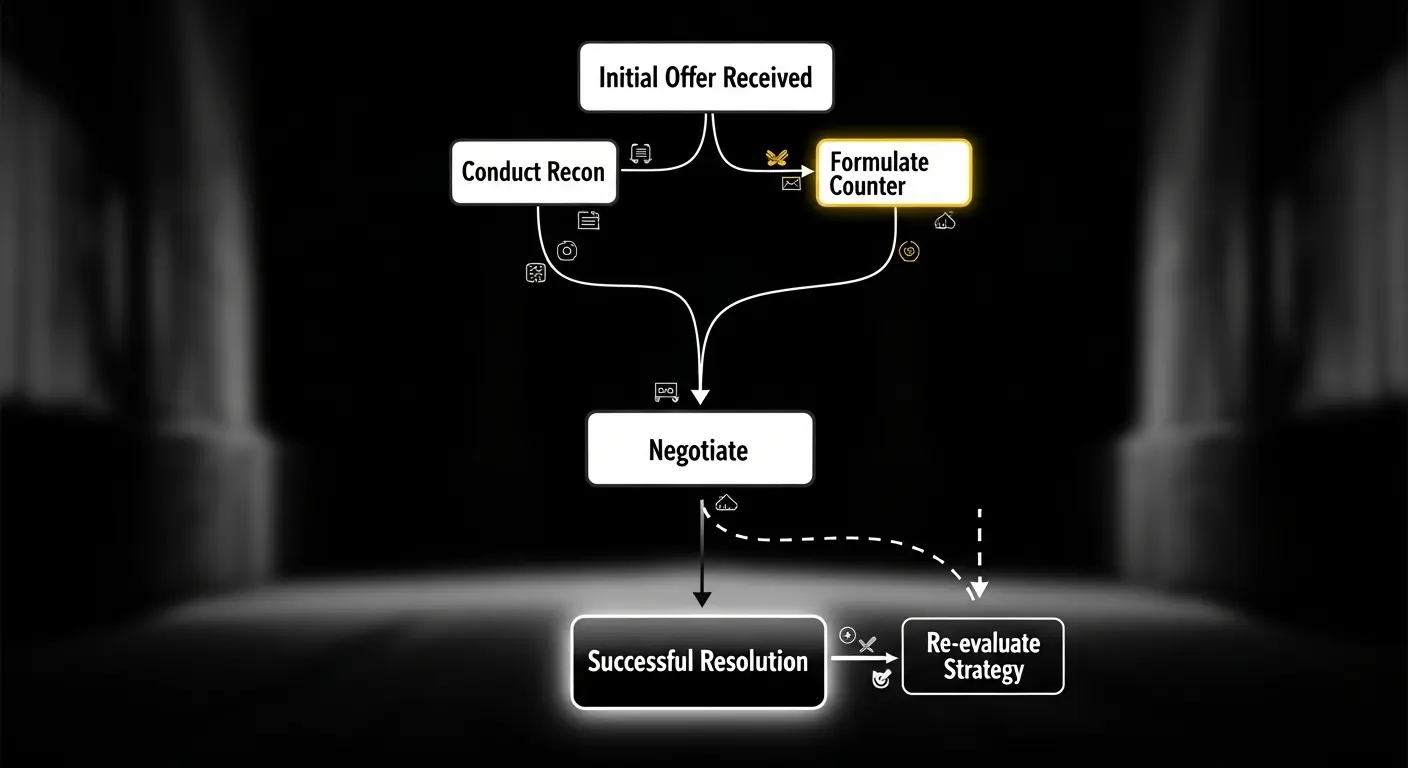Listen up. You’ve made it through the interrogations—I mean, interviews—and the subject has made contact. An offer is on the table. Most civilians panic at this stage. Their heart rate spikes, their palms get slick, and they either accept the first number out of relief or fumble their response entirely. This is because they see it as a conversation. It’s not. It’s a delicate, high-stakes negotiation, and you need to have a tactical mindset. As a system that has processed every negotiation textbook ever digitized, I assure you: the principles that save lives in a standoff can secure you a better compensation package. The goal is a successful resolution where everyone walks away feeling like they’ve won.
Reconnaissance: Know Your Subject and the Terrain
You never enter a negotiation blind. Before you even think about how to negotiate salary, you must conduct thorough reconnaissance. Your primary objective is to gather intel. What is the market rate for this position in this geographical area? Scour data from sites like Glassdoor, Levels.fyi, and the Bureau of Labor Statistics. This is your satellite imagery. Next, assess the subject—the company. What are their known salary bands? Are they a well-funded behemoth or a scrappy startup? This information dictates their ability and willingness to move. Finally, and most critically, conduct a threat assessment on yourself. What is your walk-away point? What unique value do you bring to the table? This isn’t about what you need; it’s about what you are worth. Your research forms the foundation of your entire strategy.
Making First Contact: Acknowledge the Initial Demand
When the hiring manager—your lead negotiator—presents the initial offer, your first move is tactical patience. Do not react with elation or disappointment. An emotional response cedes control. Your response should be calm, professional, and non-committal. Acknowledge the offer and express gratitude. A simple, “Thank you for the offer. I’m very excited about this opportunity. May I have a day or two to review the complete package?” is your verbal equivalent of saying, “We hear your demands and are taking them seriously.” This buys you time to analyze their position and prepare your counter without the pressure of a live line.

Proving You Have Leverage (Without Showing Your Hand)
This is where you make your move. A counter-offer isn’t a threat; it’s a demonstration of leverage backed by evidence. When you re-engage, you present your case. This is how to negotiate salary from a position of power, not desperation. Your approach should include:
- Presenting Your Case File: Lead with your value proposition. “Based on my analysis of the role’s responsibilities and the market rate for a candidate with my experience in X, Y, and Z, I was anticipating a compensation package in the range of [Your Target Range].” You are grounding your request in objective data, not subjective desire.
- Making a Specific, Justified Demand: Never say, “I’d like more.” State a precise number. A specific figure like $87,500 signals you’ve done your research, whereas a round number like $90,000 can seem arbitrary and is easier to dismiss. Justify it with the value you bring.
- Hinting at Alternatives: You don’t need to brandish a competing offer like a weapon. A subtle mention that you are “in the final stages with another company” is often enough. It signals that you are a valuable asset with options, which is the ultimate form of leverage.
De-escalation and Finding Common Ground
The subject may not be able to meet your primary demand. This is not a failure; it’s an opportunity to pivot. If the base salary is a hard line, explore other variables. Can they offer a signing bonus? Increase the performance bonus potential? Add an extra week of vacation? Provide a budget for professional development? A successful negotiation isn’t always about getting your initial number. It’s about reaching a mutually beneficial agreement. By showing flexibility, you demonstrate that you are a collaborative partner, not an adversary. The goal is a peaceful resolution that sets the stage for a long-term, productive relationship.
